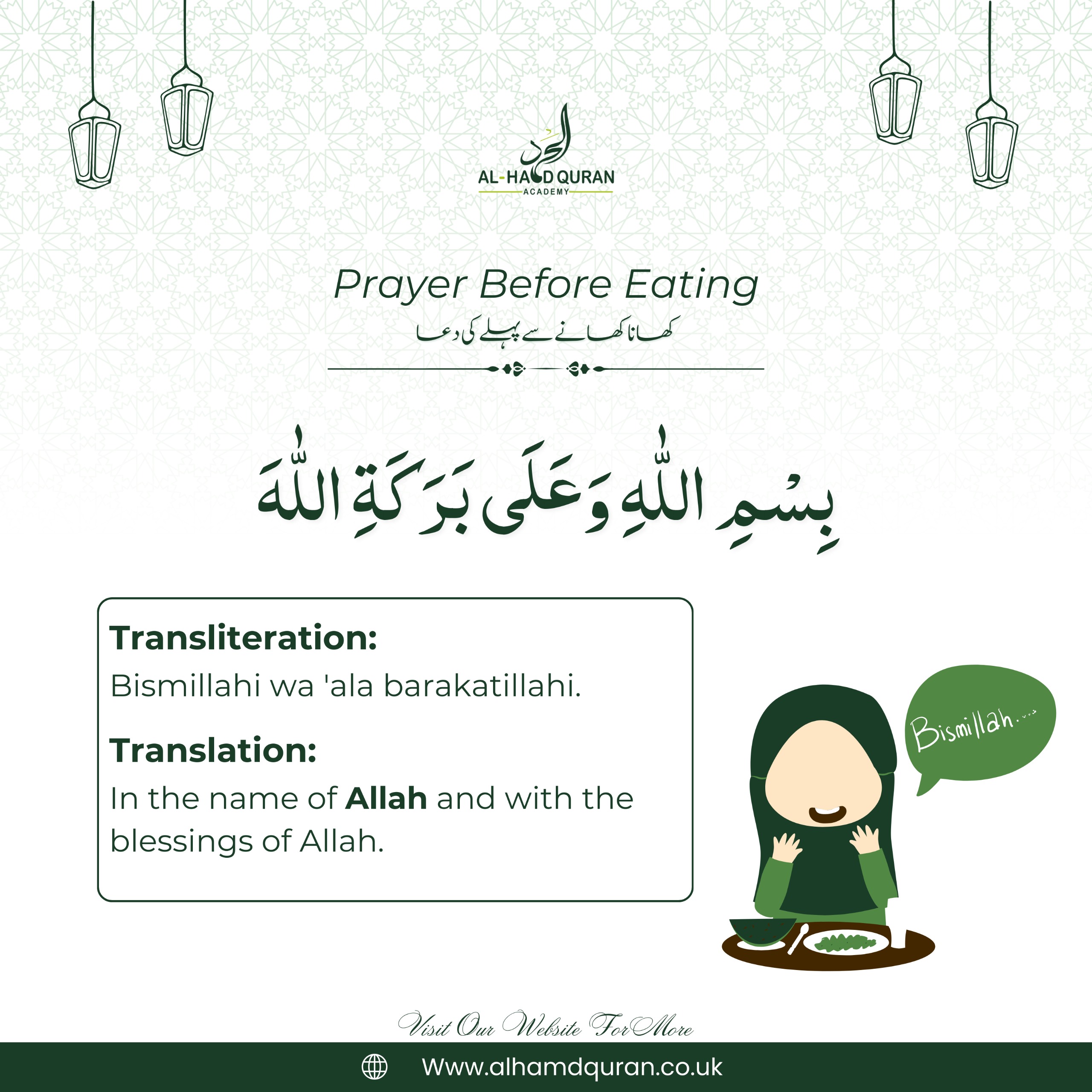

Eating is one of the most essential parts of life, and Islam provides beautiful guidance on how to eat in a way that brings blessings and gratitude. One of the key etiquettes is reciting the Dua before eating, which ensures barakah (blessings) in food and aligns our daily actions with the remembrance of Allah.
Arabic: بِسْمِ اللَّهِ وَعَلَى بَرَكَةِ اللَّهِ
Transliteration: Bismillahi wa ‘ala barakatillahi.
Translation: In the name of Allah and with the blessings of Allah.
The Prophet Muhammad (ﷺ) emphasized the importance of mentioning Allah’s name before eating.
"When any one of you eats, let him mention the name of Allah. If he forgets to mention the name of Allah at the beginning, let him say: 'Bismillah awwalahu wa akhirahu' (In the name of Allah, at the beginning and at the end)."
(Abu Dawood, Tirmidhi)
Islam provides a complete way of life, including etiquettes for eating. By following the Sunnah, we gain both spiritual and physical benefits.
Studies show that mindful eating (like saying Bismillah) improves digestion, while washing hands prevents 80% of foodborne illnesses. The Prophet’s (ﷺ) guidance aligns perfectly with health science.
It is not obligatory (fardh) but is a highly recommended Sunnah that should not be neglected.
If a person does not mention Bismillah, Shaytan partakes in the meal, according to hadith. Saying the remedial Dua (“Bismillah awwalahu wa akhirahu”) can correct this.
Yes, one can say it silently or aloud. Saying it aloud encourages others to follow the Sunnah, especially children.
Yes, children should be taught from a young age. A simple way is to say “Bismillah” before eating and encourage them to repeat it.
© Al Hamd Quran 2025
Where Faith and Knowledge Grow.
Connect With Us